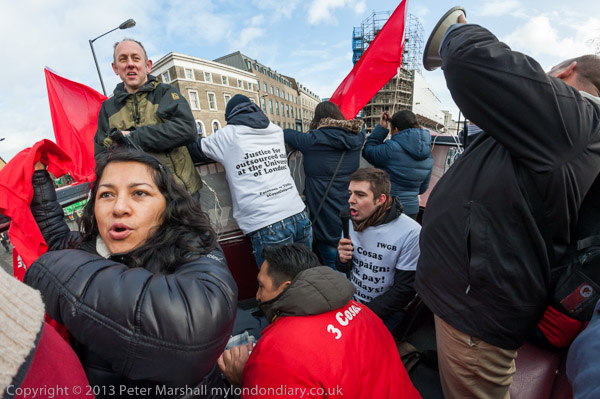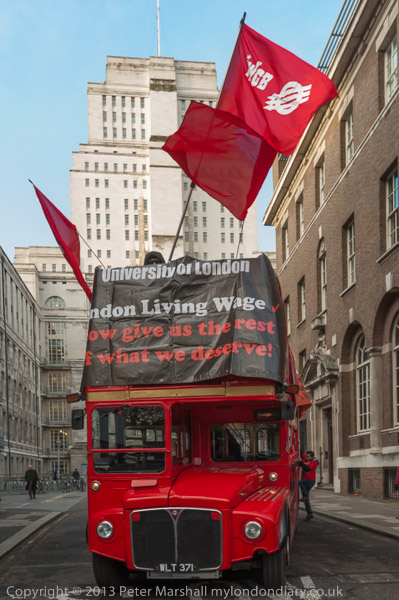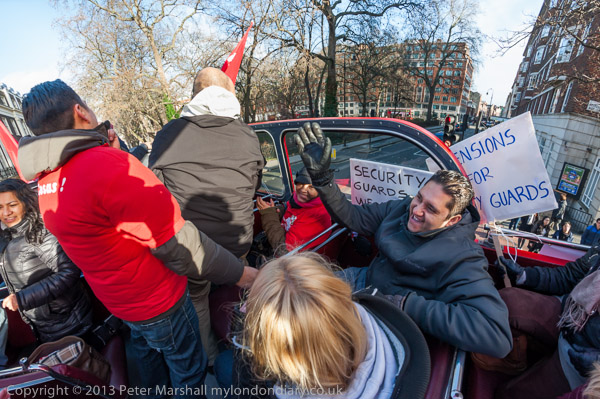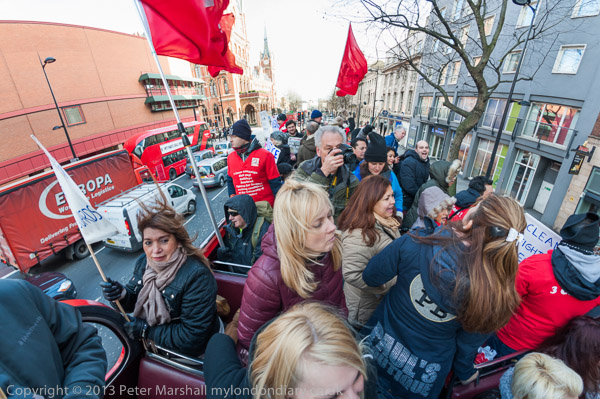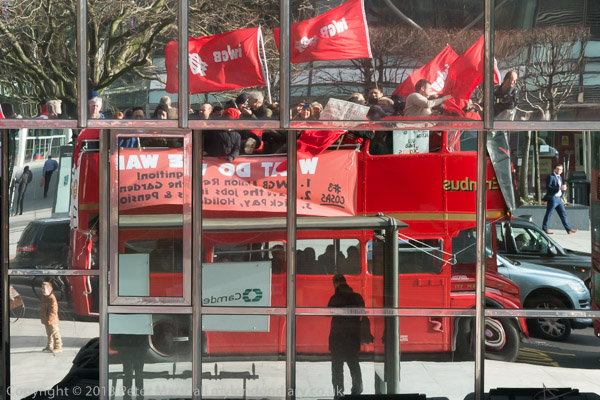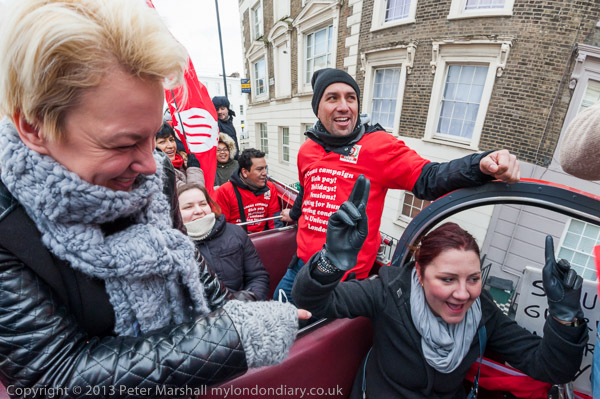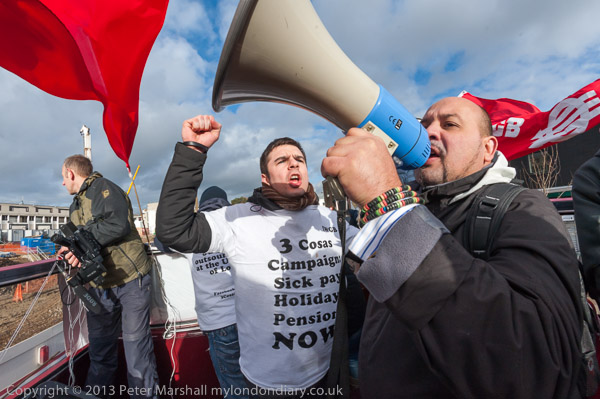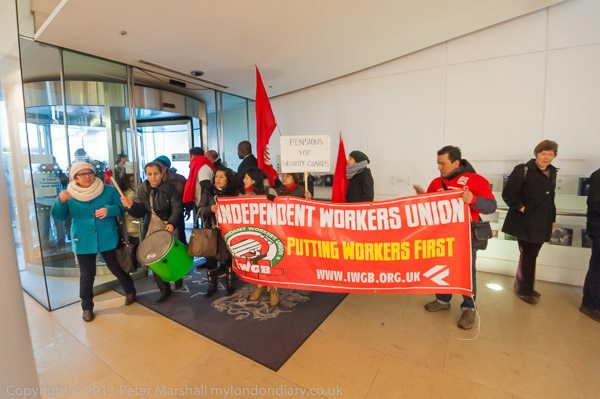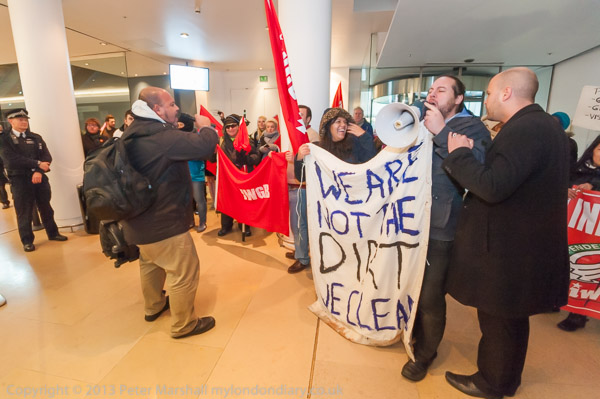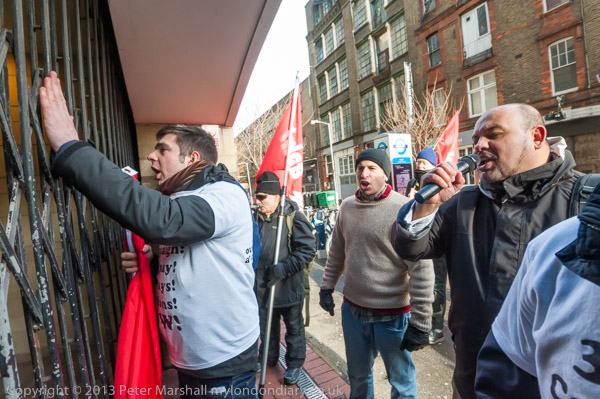Zero Hours at Sports Direct, Cleaners at John Lewis Westfield – On Saturday 3rd August 2013 I photographed one of many protests calling for an end to zero hours contracts at Sports Direct branches then hurried to Stratford, where a surprise protest inside the store demanding demanded that their cleaners get a living wage and be treated in the same way as other workers in the store.
End Zero Hours Contracts – Sports Direct, Oxford St
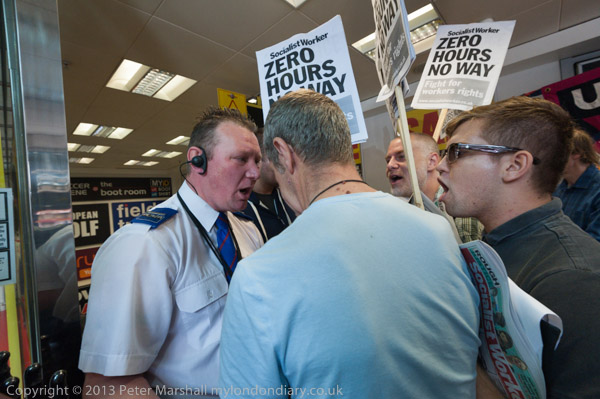
Over 85% of the 20,000 part-time staff at Sports Direct branches across the country were on Zero-hour contracts which deprived them of sick pay, holiday pay and other employment rights. These contracts have no guaranteed weekly hours or income and have now become widely used – including by Buckingham Palace and 13 out of 32 London Boroughs.
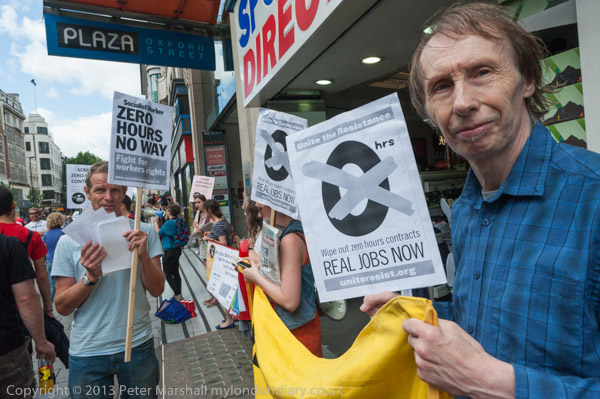
Essentially they deny the whole concept of a contract as normally understood, agreements without substance which gravely disadvantage workers. They provide no guaranteed weekly hours or income and are used to cut wages and avoid holiday pay and pensions. Despite no guarantee of any income, they oblige the workers to be available for work at the employer’s whim, making it impossible for them to take on other work.
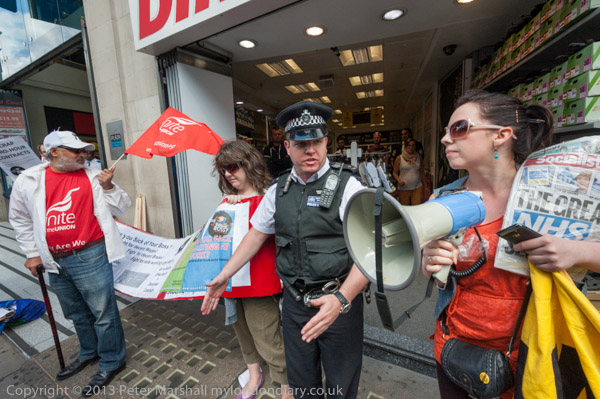
Zero hours contracts are also illegal if they do not give workers the statutory minimum requirements for paid holidays, wages, sick pay, maternity pay etc, but these again are difficult to enforce. There are various types of zero hours contracts but all are essentially designed to exploit workers.
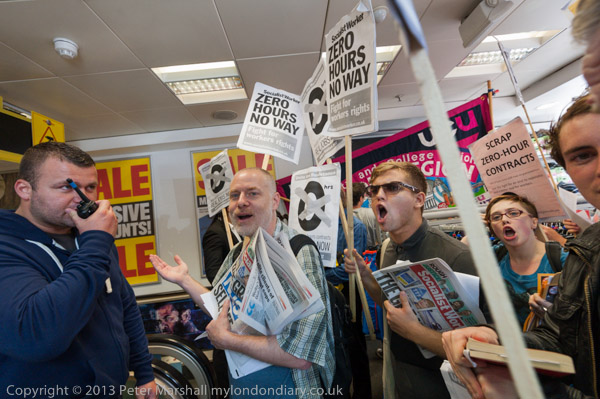
The protest started with around 50 people making a lot of noise on the pavement outside the shop and handing out leaflets to the many shoppers passing by. Many of those who took the leaflets expressed surprise that such contracts were legal – and a change in law in 2015 made it illegal for contracts to deny employees the possibility of working for another employer – though there is no effective mechanism to stop employers penalising workers who turn down shifts offered because they have another job at that time.
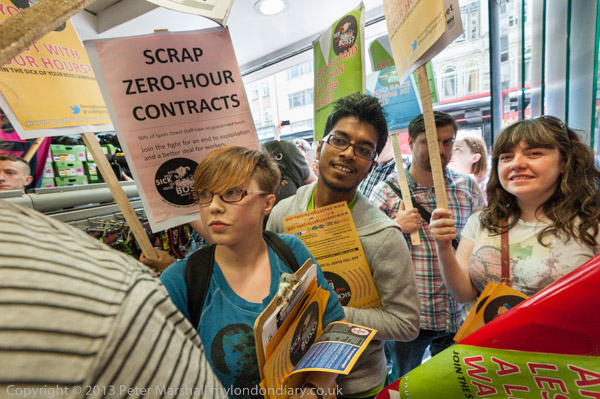
After around 50 minutes the protesters surged into the small street-level area of the store, intending to go down the escalator leading to the main store area. Security staff blocked their path and told them to stop, and they did. One security man tried to push a protester who complained he was being assualted but otherwise the situation remained calm, with people blocking the way to the escalators in protest being watched by police and security.
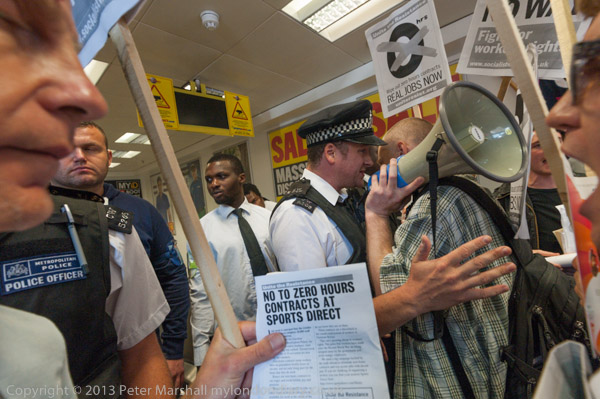
A police officer came to talk with one of the leading protesters, who made it clear they were taking care to cause no damage and would shortly leave after making their point. The officer retired and after a few minutes people left the store to continue the protest on the pavement for a few minutes before calling an end.
More at End Zero Hours Contracts – Sports Direct.
Cleaners in John Lewis Westfield – Westfield Centre, Stratford
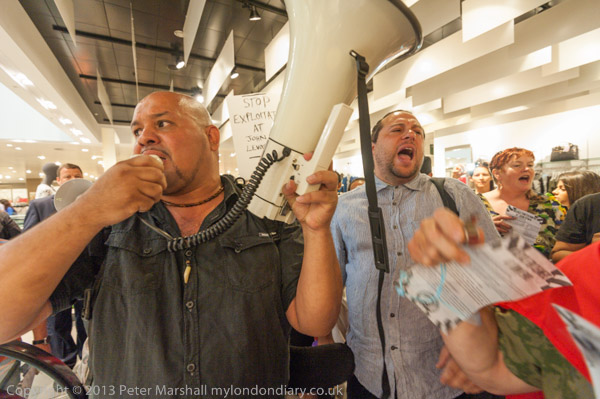
I walked from Oxford Street to take the Central Line to Stratford where I met a group of members of the IWGB outside Stratford Station on their way to protest inside John Lewis. They have been conducting a long term campaign to get the cleaners in John Lewis stores to be treated like others who work on the shop floor.
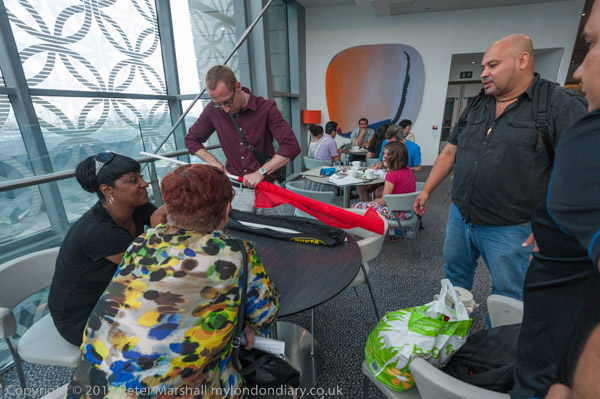
John Lewis is very proud of the fact that its workers are ‘partners’, with higher pay and better benefits than other shop workers, getting a share in the company’s profits – in 2013 this was a bonus equivalent to nine weeks pay. But the staff who keep the store clean get low pay, lousy conditions of service and are generally treated like dirt by the contract company that employs them.
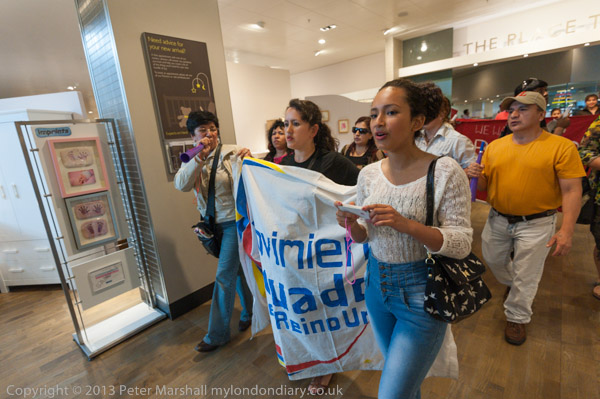
The cleaners want to be directly employed by John Lewis and so get a share in the profits and the better conditions. They were then getting £6.72 per hour, considerably less than the London Living Wage of £8.55 an hour set by the GLA and backed by the London Mayor, and only statutory sick pay, holidays and pensions from the contracting company which employed them.
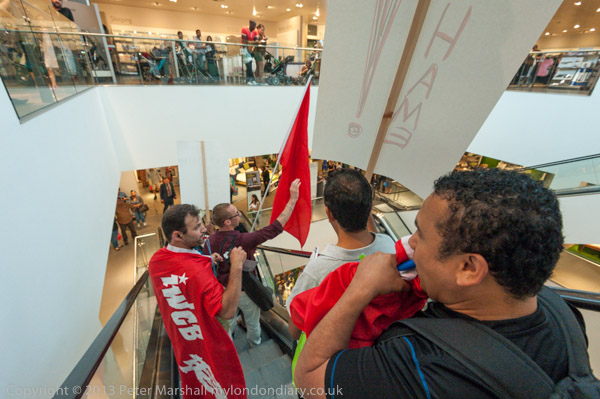
Their claims are supported by many of the ‘partners’ they work alongside, and by many John Lewis customers. But the ‘partners’ are afraid to speak out; one of them, Ralph Ashley who worked at Stratford did so and urged his fellow workers to join the IWGB, and was targeted and sacked after he gave an interview to the Guardian. As well as their own demands, the protesters also demanded he get justice and be re-employed.
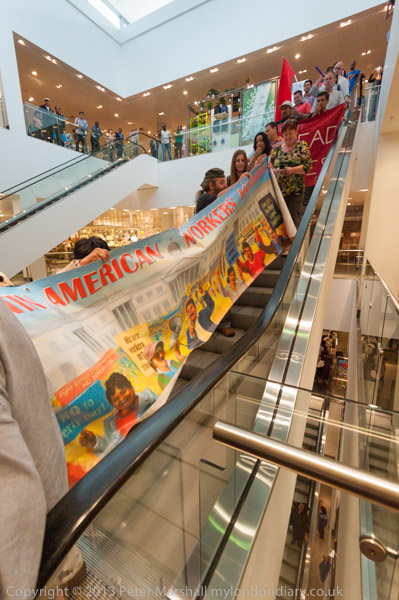
The IWGB members and supporters kept quiet as they moved through Stratford Westfield and made their way to to the third floor restaurant in the large John Lewis store where they got out banners, whistles, plastic trumpets and megaphones before moving out into the centre of the shop for a noisy protest.
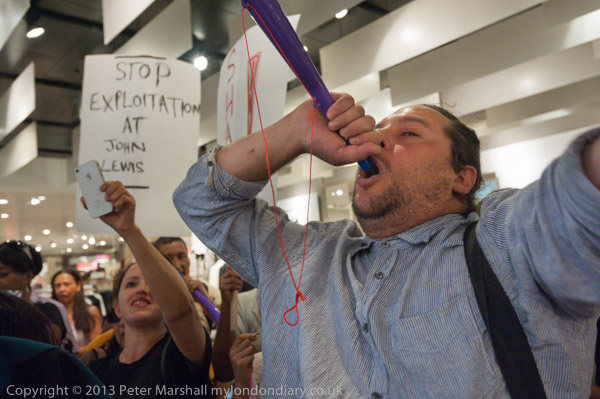
Their noisy protest as they marched around the different levels of the store to make their way to the escalators handing out leaflets attracted a great deal of attention and they stopped occasionally to explain the protest and many stopped to watch and listen.
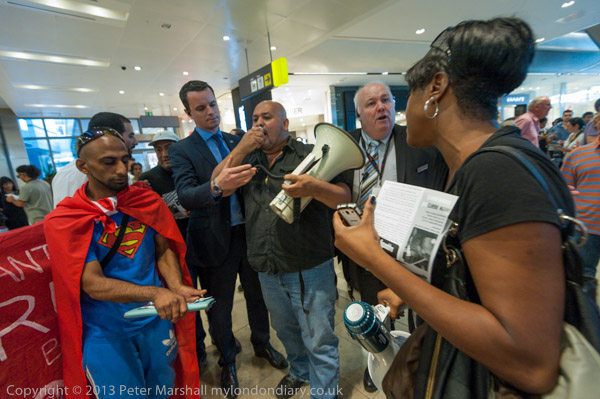
Eventually they reached the first floor ‘street’ level, holding a slightly longer protest there before moving outside. Here a small group of Westfield Security tried to stop the protest and to prevent me taking pictures both with little success. Eventually we left the enclosed street and went outside and around the side of the store.
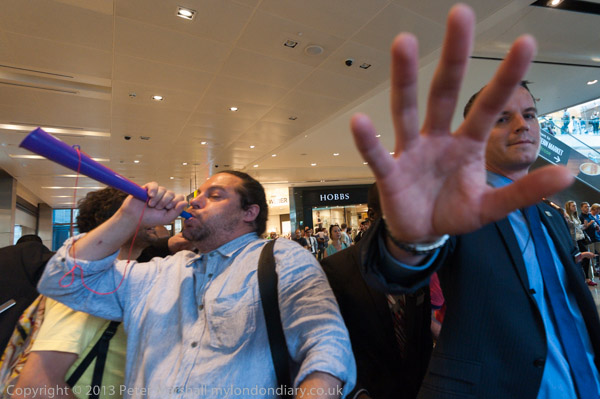
As the protesters were packing up the police arrived and having been assured that this was a peaceful protest and that the protesters were about to leave took no further action.
Much more at Cleaners in John Lewis Westfield.
